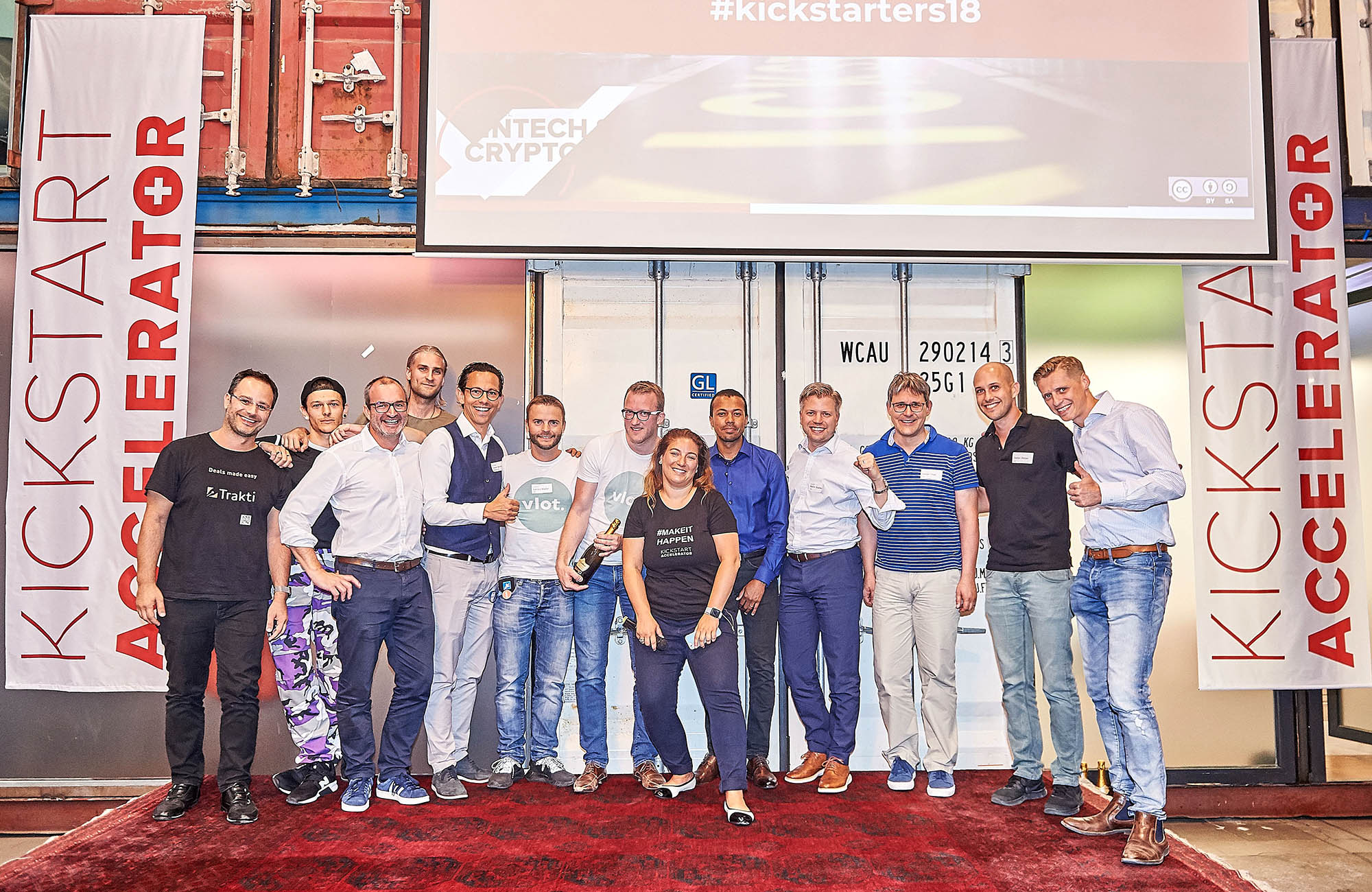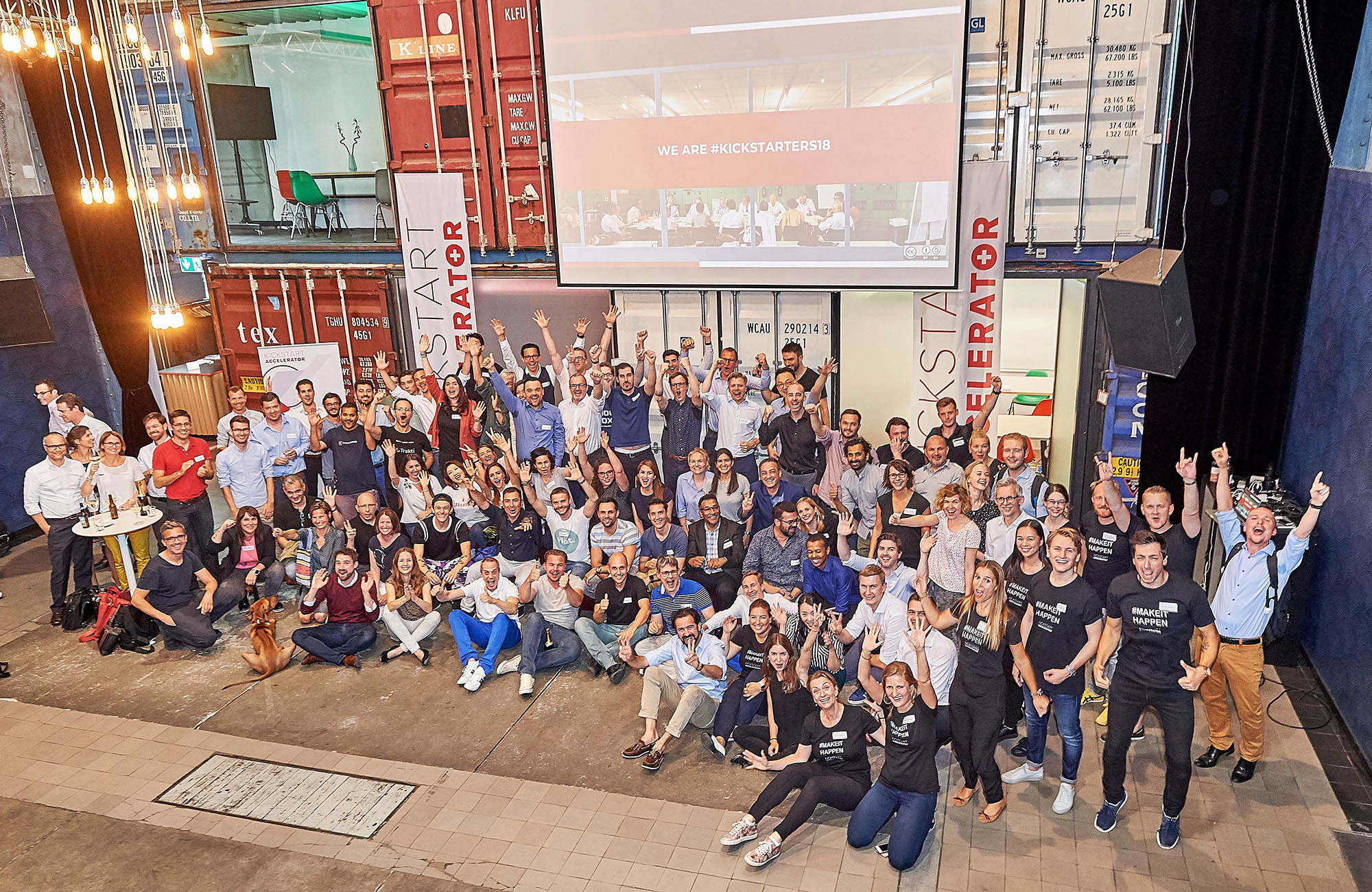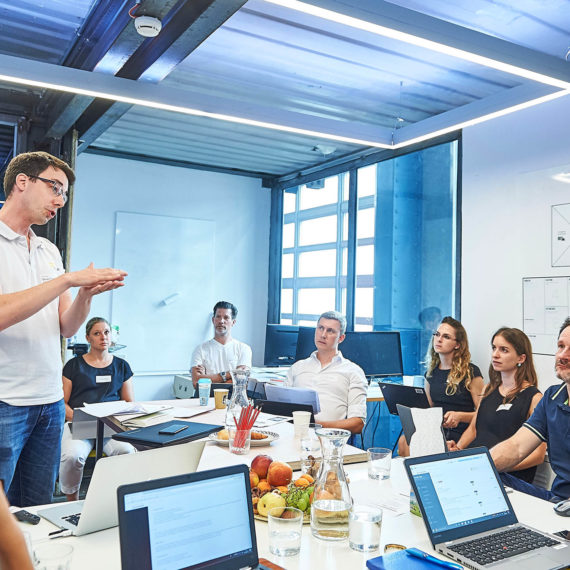The air is stuffy and the atmosphere is tense. Sixty start-ups pitched at Kickstart Accelerator’s bootcamp in Zurich in early July for a spot on the mentoring programme. Comments and impressions.
It’s a hot summer day in Zurich. At Kraftwerk, the former electricity company substation in Selnau, it’s stuffy. The air is buzzing and you can feel the tension. In small container rooms, 60 start-ups from 22 countries are pitching to participate in the 2018 Kickstart Acceleratorprogramme. Of these start-ups, 30 will be selected at the end of the day for the mentoring programme. No decisions have been made yet.
In the Kraftwerk café, colourful MacBooks abound and the first beer is served late in the afternoon, a sign that the pitch is over and the founders are waiting to hear the jury’s decision.
Blockchain ecosystems and smart cities
As one of Kickstart Accelerator’s global partners, Swisscom is represented on the jury by Roland Cortivo and Michel Pfäffli. Cortivo concentrates on the fintech sector, while Pfäffli keeps a close eye on smart city start-ups. So how do they tackle the difficult challenge of selecting participants for the accelerator programme?
The first round of selection is made based on the degree of maturity, says Cortivo: ‘Start-ups become interesting for us if there is a possibility of executing a pilot project with them.’ This Proof of Concept – PoC – is also what Pfäffli is looking for: ‘Some smart city start-ups want to change the world. Their PoC then shows if that can actually happen.’
A good nose and the combination of skills provided by the founders also play a role, adds Cortivo. Of course, the business idea is important: ‘Blockchain is omnipresent among the fintech start-ups,’ he comments. ‘But the start-ups that are particularly interesting are the ones that develop a platform and serve as a portal for various services.’ And although everyone is talking about blockchain, it is far from being its own business model.
One of the fintech representatives is Altoo. The start-up from Zug aims to simplify asset management for wealthy individuals by enabling them to manage all their investments – securities, real estate, private equity – from a central platform. CEO Martin Stadler has similarly ventured before the critical panel of judges. No matter the result, he says, both days were positive: ‘It was inspiring to meet start-ups and founders from around the world. Talking about various topics gave me a fascinating insight into how others promote their visions and how they deal with the challenges of a start-up company.’

Connect, question and continue to grow
It is now early evening. As rush hour traffic backs up outside on the street, the atmosphere starts to relax. Now instead of laptops, drinks are being opened and concentrated work has turned into lively conversation. The start-ups and companies are exchanging ideas, and English is the language most commonly heard. Networking is an important aspect of Kickstart Accelerator.
But the relaxed mood is short-lived, as the participants meet up in the Kraftwerk foyer: the jury has made its decision. The start-ups that will be participating in the Kickstart Accelerator programme are asked to take the stage. They all receive a round of applause and the atmosphere is supportive.
Stadler’s Altoo is one of the 30 selected start-ups. With a combination of anticipation and realism, he says: ‘We are excited about learning a lot by working with such experienced partners and mentors in the accelerator programme, and getting ready for the next steps. It is important that a company is constantly challenged in terms of strategy and vision.’ He views a critical and professional approach as the way to advance a start-up.
The programme starts in September and lasts for approximately two months. Any initiated PoCs will of course continue to be conducted. That is also Stadler’s goal: ‘We already have concrete plans for how we might work together with various partners, and we are excited to get started as part of the accelerator programme.’

Mature start-ups and juicy burgers
At the very end, it’s even possible to snap a photo of all of the participants. Then they can all finally get out of the stuffy venue. The start-ups bring the evening to a close over burgers, cola and beer. Some participants have already started their long journey home.
The hectic pace is long forgotten and the time has come to sum up. ‘The range of subjects and number of countries represented were remarkable,’ sums up Cortivo. He comments that these factors are not necessarily a given considering the intense competition from international start-up hubs such as London, Singapore and, of course, Silicon Valley: ‘That says a lot about the appeal and quality of Kickstart Accelerator.’
‘I saw some start-ups in the smart city sector that could really be of benefit to society; those, for example, that promote social inclusion or support ecological sustainability,’ says Pfäffli of his work as a jury member. And: ‘Compared with last year’s Kickstart Accelerator, this year’s start-ups are further along in the development process, which increases the likelihood of successful cooperation.’
Meanwhile, Stadler has long been thinking about the period after the mentoring programme and highlights the importance of start-up support for the Swiss business community: ‘Switzerland has a very active start-up scene, and the economic, political and tax conditions are basically positive. But after the PoC is completed and the time comes to take further steps to develop a start-up, Switzerland’s high salaries and relatively small domestic market can quickly become obstacles in comparison with other countries. That is what makes support measures that promote the internationalisation of a business model just as important.’
And as the sun sets slowly over Zurich, the evening’s other major topic appears on the horizon and all business talk is forgotten: the football World Cup and the France vs. Belgium semi-final.

